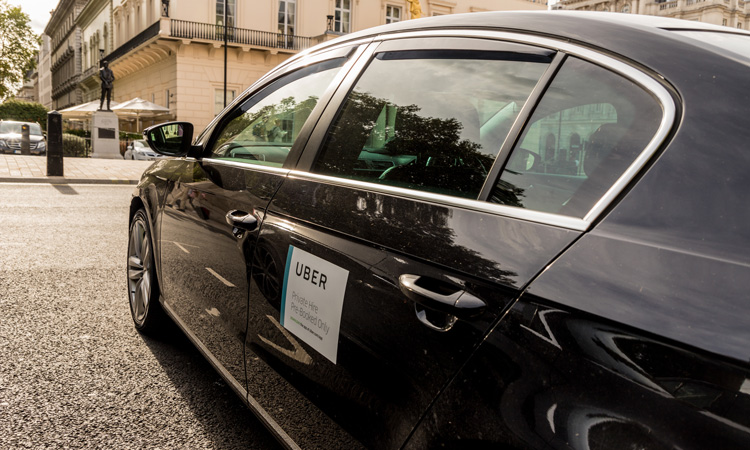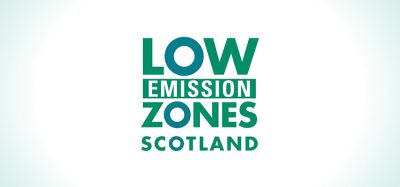Uber London denied new private hire operator licence by TfL
- Like
- Digg
- Del
- Tumblr
- VKontakte
- Buffer
- Love This
- Odnoklassniki
- Meneame
- Blogger
- Amazon
- Yahoo Mail
- Gmail
- AOL
- Newsvine
- HackerNews
- Evernote
- MySpace
- Mail.ru
- Viadeo
- Line
- Comments
- Yummly
- SMS
- Viber
- Telegram
- Subscribe
- Skype
- Facebook Messenger
- Kakao
- LiveJournal
- Yammer
- Edgar
- Fintel
- Mix
- Instapaper
- Copy Link
Posted: 25 November 2019 | Intelligent Transport
As the regulator of taxi and private hire services in London, Transport for London (TfL) is required to make a decision on Uber’s fitness and propriety before its current licence expires.


Transport for London (TfL) has concluded that it will not grant Uber London Limited a new private hire operator’s licence in response to its latest application.
Uber is said to have made a number of positive changes and improvements to its culture, leadership and systems in the period since the Chief Magistrate granted it a licence in June 2018, but TfL has identified a pattern of failures by the company including several breaches that placed passengers and their safety at risk.
Despite addressing some of these issues, TfL does not have confidence that similar issues will not reoccur in the future, which has led it to conclude that the company is not fit and proper at this time.
In September, Uber was granted a two-month licence as further information was required on these issues, some of which emerged late in the process of its reapplication.
A key issue identified was that a change to Uber’s systems allowed unauthorised drivers to upload their photos to other Uber driver accounts. This allowed them to pick up passengers as though they were the booked driver, which occurred in at least 14,000 trips – putting passenger safety and security at risk.
This means that all the journeys were uninsured, and some passenger journeys took place with unlicensed drivers, one of which had previously had their licence revoked by TfL. Another failure allowed dismissed or suspended drivers to create an Uber account and carry passengers.
TfL has said that is recognises the steps that Uber has put in place to prevent this type of activity, but it is a concern that Uber’s systems seem to have been comparatively easily manipulated.
Other breaches including several insurance-related issues have also occurred. Some of these led TfL to prosecute Uber earlier in 2019 for causing and permitting the use of vehicles without the correct hire or reward insurance in place.
While Uber has worked to address these issues, TfL highlighted the potential safety risk to passengers of weak systems and processes.
This pattern of regulatory breaches led TfL to commission an independent assessment of Uber’s ability to prevent incidents of this nature happening again. This work has led TfL to conclude that it currently does not have confidence that Uber has a robust system for protecting passenger safety, while managing changes to its app.
Legislation means that Uber now has 21 days to appeal, during which it can continue to operate pending any appeal and throughout any potential appeals process. Uber may seek to implement changes to demonstrate to a magistrate that it is fit and proper by the time of the appeal.
While Uber continues to operate, TfL will continue to closely scrutinise the private hire operator, which includes the need for Uber to meet the 20 conditions set by TfL in September 2019, and particular attention will be paid to ensuring that the management have robust controls in place to manage changes to the Uber app so that passenger safety is not put at risk.
“It is clearly concerning that these issues arose, but it is also concerning that we cannot be confident that similar issues won’t happen again in future. If they choose to appeal, Uber will have the opportunity to publicly demonstrate to a magistrate whether it has put in place sufficient measures to ensure potential safety risks to passengers are eliminated. If they do appeal, Uber can continue to operate, and we will closely scrutinise the company to ensure the management has robust controls in place to ensure safety is not compromised during any changes to the app,” said Helen Chapman, Director of Licensing, Regulation and Charging at TfL.
Steve Garelick, GMB Regional Officer, added: “We fully expect the Supreme Court to uphold the ruling of the Employment Tribunal, the Employment Appeal Tribunal and the Court of Appeal on driver’s worker rights in July. GMB wants to protect honest drivers, but it’s perhaps time for them to look elsewhere to work.”
Related topics
On-Demand Transport, Security & Crime, Transport Governance & Policy, Vehicle & Passenger Safety
Related modes
Taxi
Related cities
London
Related organisations
GMB, Transport for London (TfL), Uber
Related people
Helen Chapman, Steve Garelick







